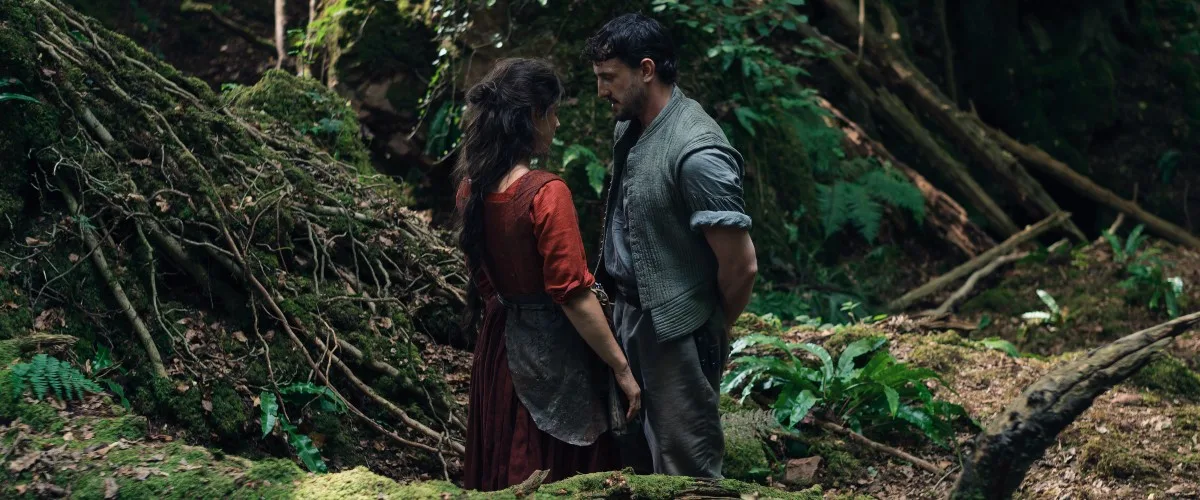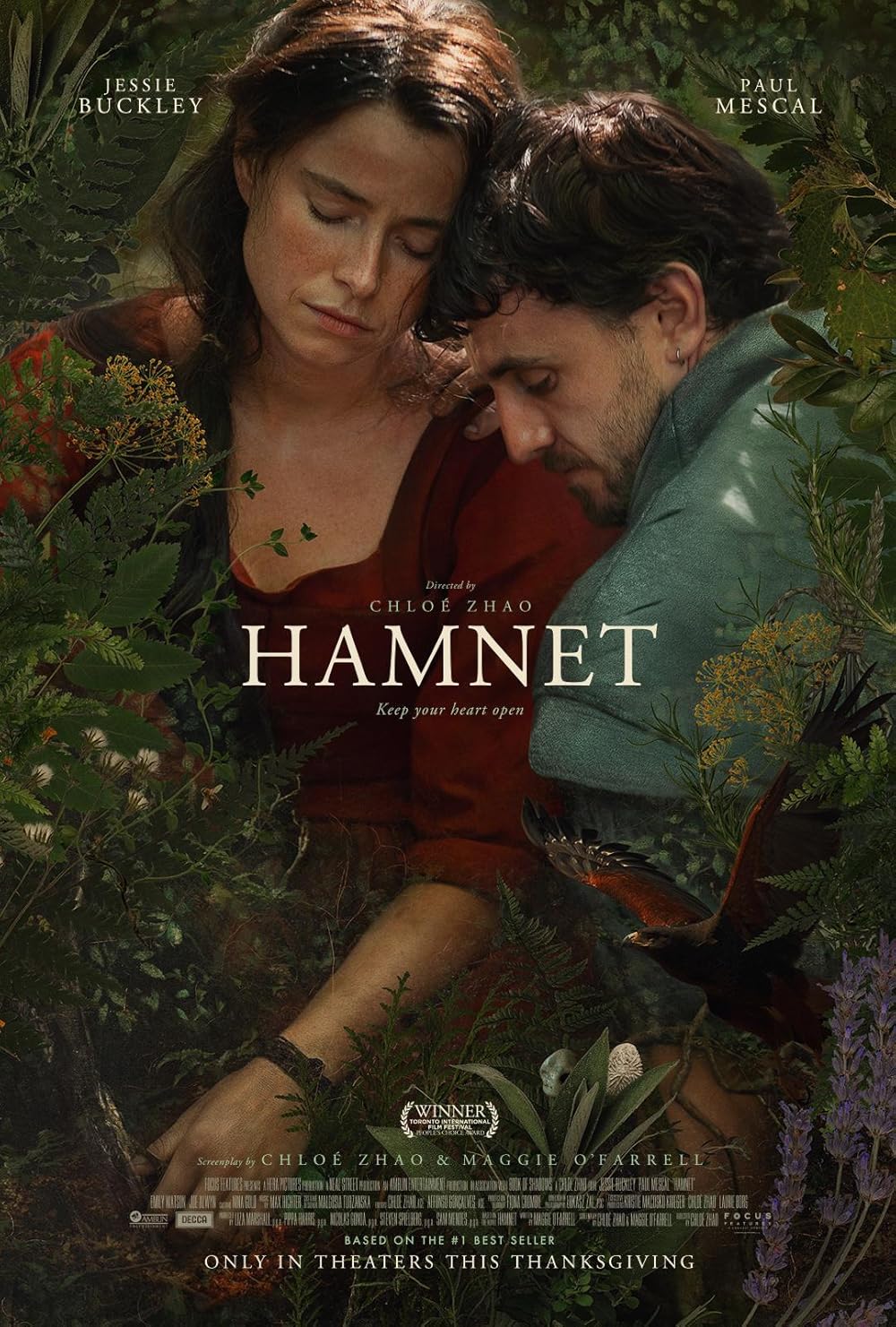What makes Chloé Zhao’s films so special is the way they convey nature’s transcendent quality. From “The Rider” to her Oscar-winning “Nomadland” and even her unloved Marvel blockbuster “Eternals,” they find the mystical within our everyday surroundings, making the prosaic feel profound.
That aesthetic instinct is the best part of “Hamnet,” Zhao’s wildly hyped fifth film. The fictionalized story of how William Shakespeare and his wife worked through the loss of their son has been overwhelming festival audiences with emotion, leaving viewers and critics alike in puddles of sobs. Jessie Buckley’s performance in particular has inspired effusive praise for its raw intensity. As the mother of a son, I was bracing myself for “Hamnet,” fully expecting that I would be an absolute wreck.
But I wasn’t.
“Hamnet” actually works best as a sensory experience, before its major plot points fall into place. Working with cinematographer Lukasz Zal (“Cold War,” “Ida”), composer Max Richter, and sound designer Johnnie Burn, an Oscar winner for his haunting work on “The Zone of Interest,” Zhao establishes a heightened forest setting where anything seems possible. It’s lush and richly textured, unsettling and enveloping at once.
We’re told early on that Buckley’s character, Agnes, is the daughter of a forest witch, and her connection to the earth, the trees, and the sky feels tangible and powerful. We first see her in an overhead shot, curled in a ball in a red dress beneath a giant tree, and it’s as if the woods are undulating and groaning around her.
When she meets cute with a guy we know only as Will (Paul Mescal)—who will eventually turn out to be The Bard—their connection feels just as alive and free. They frolic and flirt joyfully, and the qualities that make her a weirdo to everyone else make her wonderful to him. In no time, they’re married, then have a daughter named Susanna (Bodhi Rae Breathnach), and then twins: a boy and a girl, Hamnet (Jacobi Jupe) and Judith (Olivia Lynes).
And then things change.
But again, watching them as young parents—playing with their kids, teaching them about the land, squabbling over all the usual couples’ concerns—is more compelling than the Big Event that’s on the horizon. Zhao lulls us into their everyday activities, and supporting players like Emily Watson as Will’s mother and Joe Alwyn as Agnes’ brother provide further context. Working with screenwriter Maggie O’Farrell, whose novel “Hamnet” serves as the basis for this film, Zhao indicates a supernatural bond between the twins that’s delicate and fascinating.
Hamnet’s shocking death at age 11 shatters this bliss. There’s nothing subtle about Buckley and Mescal’s performances in the way they portray this bottomless ache: It’s big and shrieky and shrill, and Zhao lingers in their pain in a way that feels uncomfortably voyeuristic. The loss of a child is devastating. It’s impossible to know what that’s like unless you’ve experienced it yourself. “Hamnet” depicts this tragedy with histrionics that are so overly demonstrative, they actually take you out of the moment.
But the whole point of “Hamnet” is its connection to “Hamlet”: Both the book and the film suggest that Shakespeare wrote his greatest play as a means of processing his grief over his son’s death. Sometimes we see this in ways that are obvious and groan-worthy, as when Will does the famous “To be, or not to be” speech while standing on the river’s edge.
The play’s the thing, though, to borrow a line from the play itself. And the staging of “Hamlet” at the film’s climax provides a powerful argument for art as an opportunity for healing. We see this theme in much more understated, legitimately moving ways in another major awards contender this season, Joachim Trier’s “Sentimental Value.” But there are individual moments within the performance of “Hamlet” that are gripping in their tension, as a perplexed and bereft Agnes begins to understand what she’s witnessing.
The casting of Noah Jupe (Jacobi Jupe’s older brother) as the actor playing Hamlet is a clever touch that ties back to the film’s spiritual connection. The choice seems to say: This is who our son might have become if he’d lived long enough to take the stage himself, something he’d dreamed of doing as a mischievous little boy. (Both Jupe brothers make a strong impression within their limited screen time.)
And there’s an overhead shot at a crucial moment during the play that took my breath away. It suggests the power of theater as a living, breathing thing to change hearts and minds, and visually, it serves as a mirror image of Agnes in the forest at the film’s start. The craft on display alone is enough to bring a tear to your eye.




















